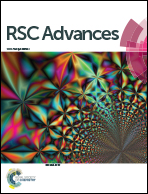Involvement of the modulation of cancer cell redox status in the anti-tumoral effect of phenolic compounds
Abstract
Several studies demonstrate the anti-tumoral potential of food phenolics. However, this effect has been attributed to an artefact resulting from the H2O2 generated by phenolic compounds auto-oxidation in a culture medium in in vitro cell cultures. In this work, the contribution of H2O2 for the anti-proliferative effect of phenolic compounds in gastric (AGS) and colon (Caco-2) cancer cell lines was analysed. Tri-hydroxylation on the B-ring was correlated with higher levels of H2O2 in the culture medium and higher anti-proliferative potential. The inhibitory effect of the phenolics, except quercetin, was partially dependent on H2O2 generation. A quercetin effect was also not mediated by O2˙−. Quercetin, in contrast with other phenolics, affected intracellular oxidation decreasing ROS levels in AGS cells but transiently increasing them in Caco-2 cells. Notably, quercetin also decreased glutathione levels in AGS cells. These results suggest that the modulation of redox homeostasis and glutathione depletion contribute to the anti-tumoral effect of quercetin.


 Please wait while we load your content...
Please wait while we load your content...